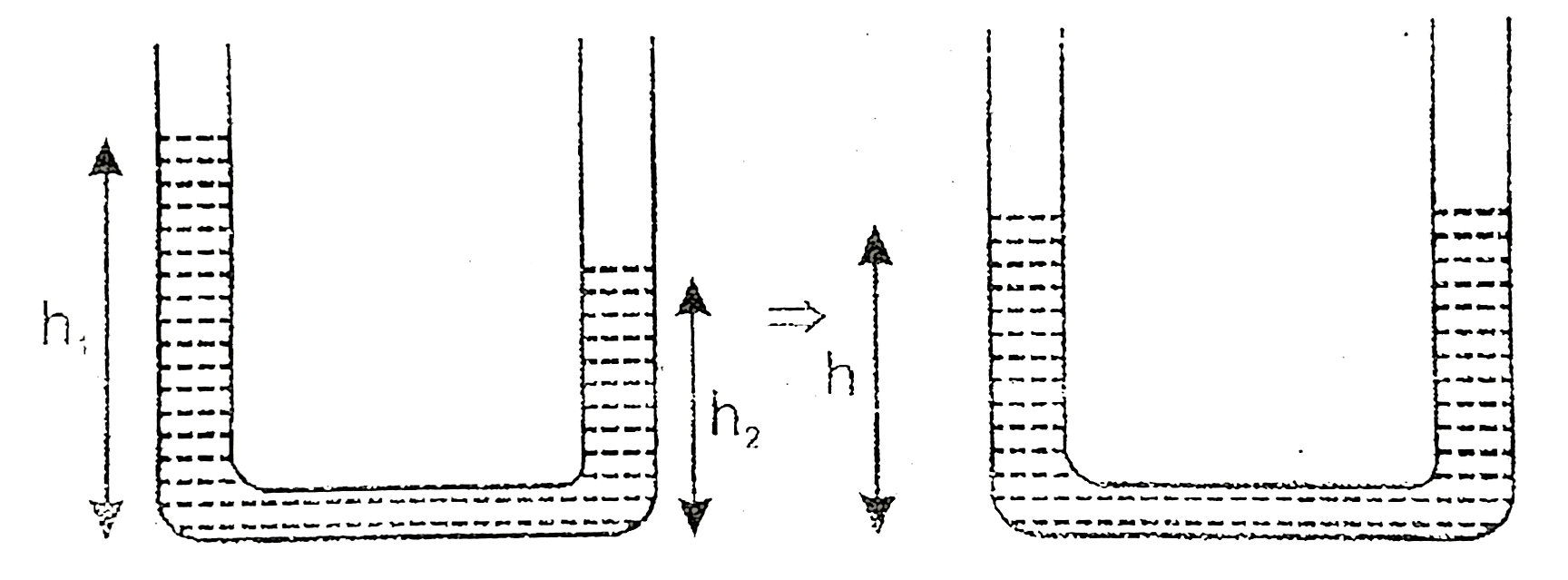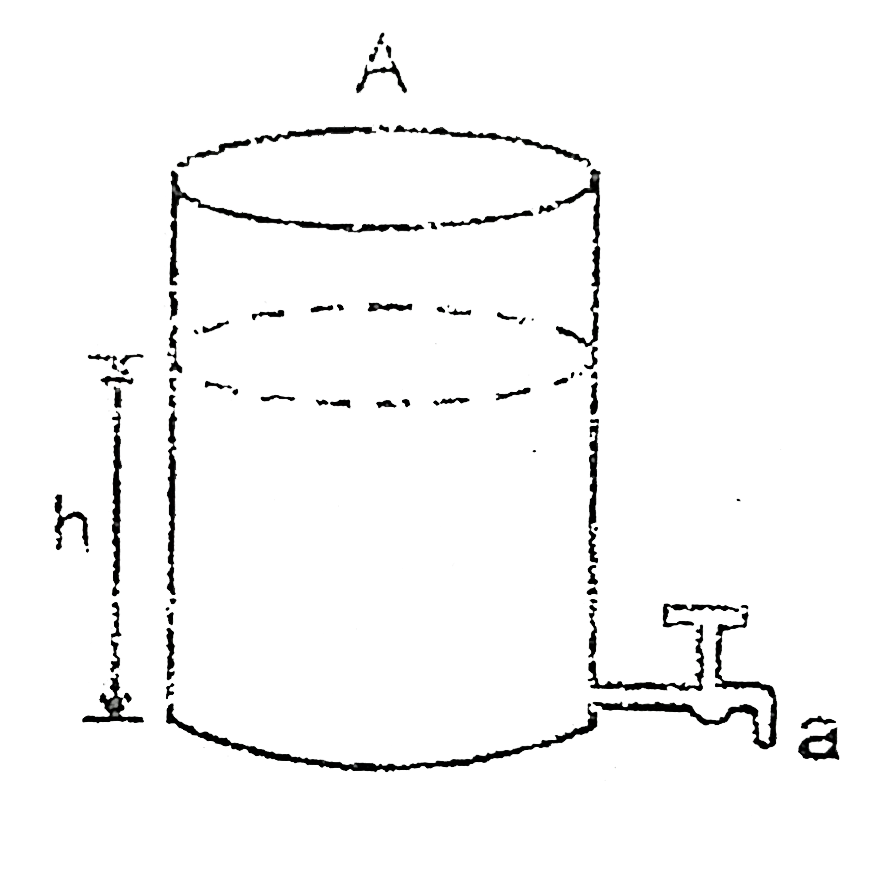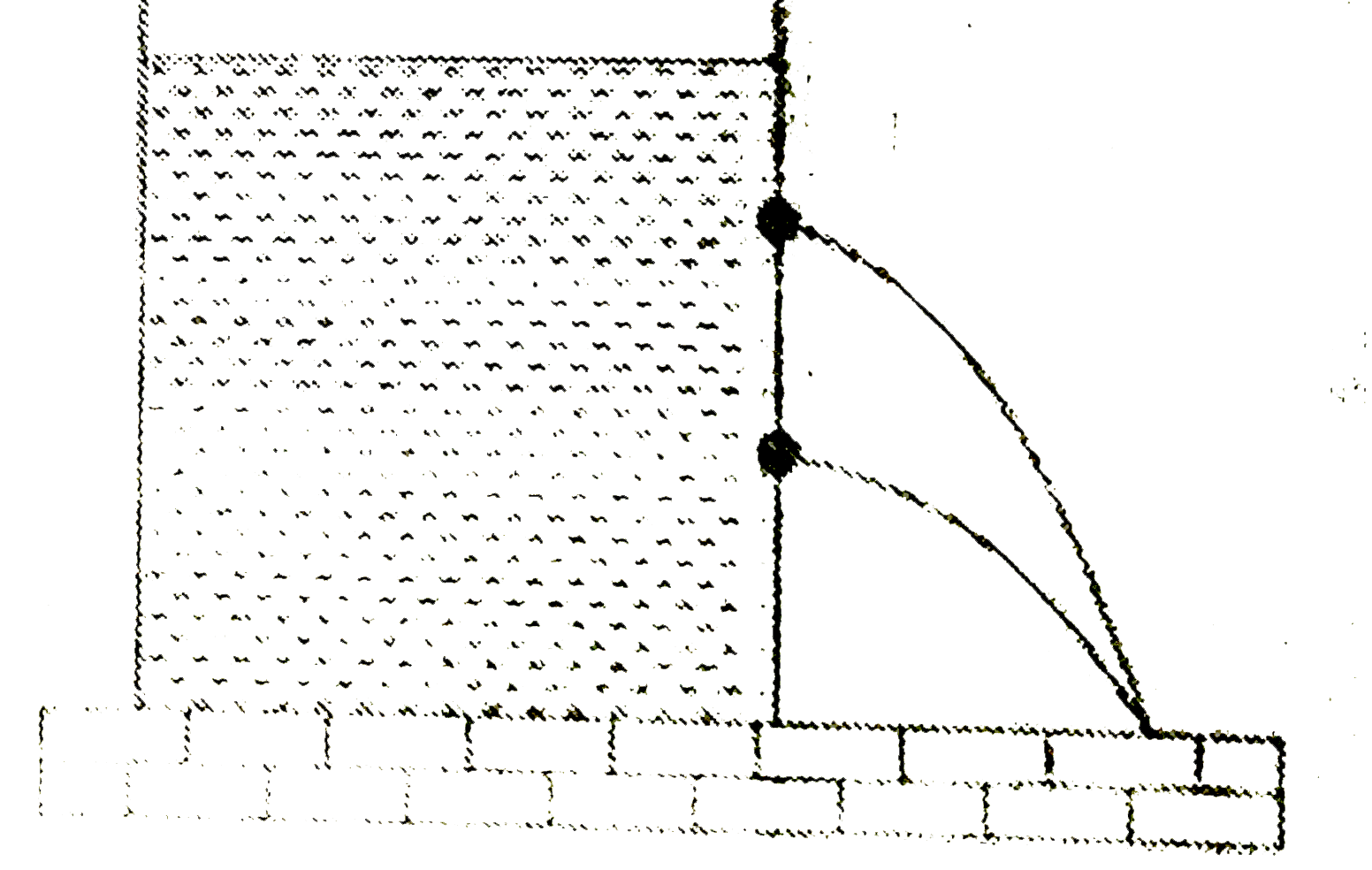Two cyllindrical vessels of equal cross sectional ara A contain water upto heights h1 and h2. The vessels are interconnected so that the levels in them become equal. Calculate the work done by the force of gravity during the process. The density of water is ρ
The correct Answer is:gAρ4(ht−h2)2
Let h be level in equilibrium. Equating the volumes, we have
Ah1+Ah2=2Ah
∴H=(h1+h22)
Work done by gravity =Ui−Uf
Work W=(m1gh12+m2gh22)−(m1+m2)gh2
=Ah1ρgh12+Ah2ρgh22−[Ah1−Ah2ρ+Ah2ρlg(h1+h24)
Simplifying this, we get
W=ρAg4(h1−h2)2

Topper's Solved these Questions
Similar Questions
Two identical cylindrical vessel with their bases at the same level each contain a liquid of density ρ. The height of the liquid in one vessel is h1 and in the other is h2 the area of either base is A. What is the work done by gravity is equalising the levels when the two vessels are connected?
View SolutionWater at 50∘C is filled in a closed cylindrical vessel of height 10cm and cross sectional area 10cm2 The walls of the vessel are adiabatic but the flat parts are made of 1−mm thick aluminium (K=200Js−2m−1C−1 . Assume that the outside temperature is 20∘C . The density of water is 1000kgm−3 and the specify heat capacity of water =4200Jkg−1C−1 .Estimate the time taken for the temperature to fall by 1.0∘C . Make any simplifying assumption you need but specify them.
View SolutionMercury of density ρm is poured into cylinderical communicating vessels of cross-sectional area 2A and A respectively. A solid iron cube of volume V0 and relative density 2 is dropped into the broad vessel, and as a result the level of the mercury in it rises. Then, water is poured into the broader vessel until the mercury reaches the previous level in it. Find the height of water column if it does not submerge the block.
View SolutionWater level is maintained ina cylindrical vessel up to a fixed height H. The vessel is kept on a horizontal plane. At what height above the bottom should a hole be made in the vessel so that the water stream coming out of the hole strikes the horizontal plane at the greatest distance from the vessel.

View SolutionA cylindrical container of cross-section area, A is filled up with water upto height 'h' Water may exit through a tap of cross sectional area 'a' in the bottom of container. Find out

(a) Velocity of water just after opening of tap.
(b) The area of cross-section of water stream coming out of tape at depth h0 below tap in terms of 'a' just after opening of tap.
(c) Time in which conainer becomes empty.
(Given : (aA)1/2=0.22,h=20cm,h0=20cm
View SolutionA cylindrical vessel is filled with water upto a height of 1m. The cross-sectional area of the orifice at the bottom is (1/400) that of the vessel.
(a) What is the time required to empty the tank through the orifice at the bottom?
(b) What is the time required for the same amount of water to flow out if the water level in tank is maintained always at a height of 1m from orifice?
View SolutionIn a cylindrical vessel containing liquid of density ρ there are two holes in the side walls at heights of h1 and h2 respectively such that the range of efflux at the bottom of the vessel is same. The height of a hole for which the range of efflux would be maximum, will be

View SolutionTo what height h should a cylindrical vessel of diameter d be filled with a liquid so that the total force on the vertical surface of the vessel be equal to the force on the bottom-
View SolutionWater stands upto a height h behind the vertical wall of a dam what is the net horizontal force pushing the dam down by the stream if width of the dam is σ? (ρ= density of water)
View SolutionA cylindrical vessel open at the top is 20cm high and 10cm in diameter. A circular hole of cross-sectional area 1cm2 is cut at the centre of the bottom of the vessel. Water flows from a tube above it into the vessel at the rate of 102cm3/s. The height of water in the vessel under steady state is (Take g=10m/s2).
View Solution

